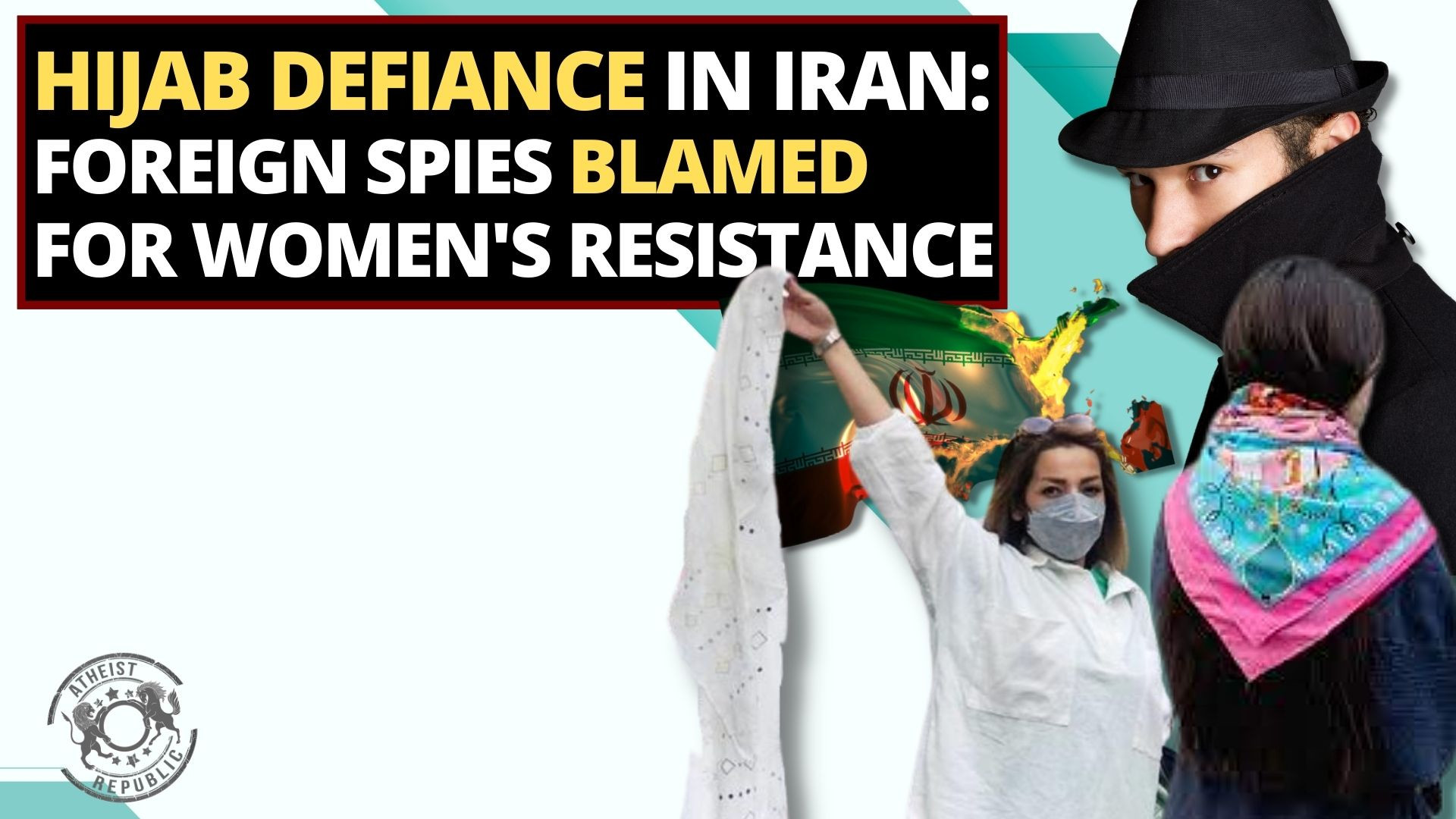
The Islamic Republic has recently unveiled new plans to further impose its strict mandatory hijab laws despite massive backlash from Iranian women after the death of Mahsa Amini last September 2022, promising to further crackdown on dissent against the rule.
Some of these proposed policies include setting up hijab enforcement groups in the stations of the Tehran metro, which would ban any woman not wearing a headscarf from entering and effectively ban them from going to work or school.
Women not wearing hijab to be banned from Tehran metro – reports https://t.co/Np1G3qmvaw
— Guardian World (@guardianworld) April 10, 2023
Another proposal is to set up surveillance cameras around streets and other public spaces to identify further women not wearing hijabs and penalize them, as announced by the Iranian police on April 8th.
Under the proposal to set up CCTVs in public areas, violators of the hijab laws would receive “warning text messages as to the consequences” of not obeying the law after they were identified.
We’re already under surveillance in many public places around the world.
But in Iran, authorities are taking it a step further by installing “smart” security cameras to identify women who aren’t wearing a hijab. pic.twitter.com/CvZH0LZtl8— Human Rights Watch (@hrw) April 13, 2023
Iranian authorities also stated they were “preventing resistance against the hijab law” upon announcing the decision to use surveillance cameras to identify unveiled women.
As for the planned hijab enforcement groups in the Tehran metro, the Tehran Metro Company initially announced they were launching a verbal reminder project in the capital and suburban metro stations “in line with the demands of the noble people of Iran on the issue of hijab.”
These two proposed moves follow a series of actions by the Iranian government, keen on further imposing its mandatory hijab laws. Last March, it ordered female pharmacy workers to wear the headscarf while at work, a move criticized and mocked by male pharmacists in Iran.
Despite these harsher restrictions, however, a growing number of Iranian women have defied the rules by not wearing the headscarf in public spaces. Many women were doing this to protest against the government and in solidarity with the “Women, Life, Freedom” protests that have rocked the country since last year.
Resistance to wearing a headscarf increases among Iranian women, as the chasm between leaders and the population widens https://t.co/xtlw1fvc38
— The Wall Street Journal (@WSJ) April 16, 2023
Nevertheless, this dissent was met with backlash from the government and its supporters. Earlier this April, a man slapped a tub of yogurt at two women at a store for not wearing a hijab. The man was arrested for disturbing public order, while the women were charged with not obeying the mandatory hijab laws.
Iran’s judiciary has also promised to fine women 1 million tomans (equivalent to $236 US dollars) if they were found guilty of not wearing the hijab. The head of the judiciary, Gholam-Hossein Mohseni-Eje'i, claimed that women who don’t obey the mandatory hijab laws were cooperating with foreign spy agencies, echoing the sentiments earlier made by Iran’s Supreme Leader, Ayatollah Khamenei.
Noting the extreme unpopularity of using a heavy-handed response to tackle the issue with hijab, Gholam-Hossein Mohseni-Eje'i emphasized “the importance of distinguishing between those who are unaware of hijab regulations and those who collude with foreign spy agencies in this regard."
The head of #Iran’s judiciary has again threatened to punish women and girls who don’t abide to mandatory #hijab rules, claiming that some of them cooperate foreign spy services.https://t.co/3ePKwcVFmb #truth
— IranWire (@IranWireEnglish) April 7, 2023
Women had been required to wear long, loose-fitting clothes and cover their hair since the establishment of the Islamic Republic in 1979. Last March 30th, Iran’s interior ministry said the government would not give up on the issue, adding that the hijab is “one of the civilizational foundations of the Iranian nation” and “one of the practical principles of the Islamic Republic.”
